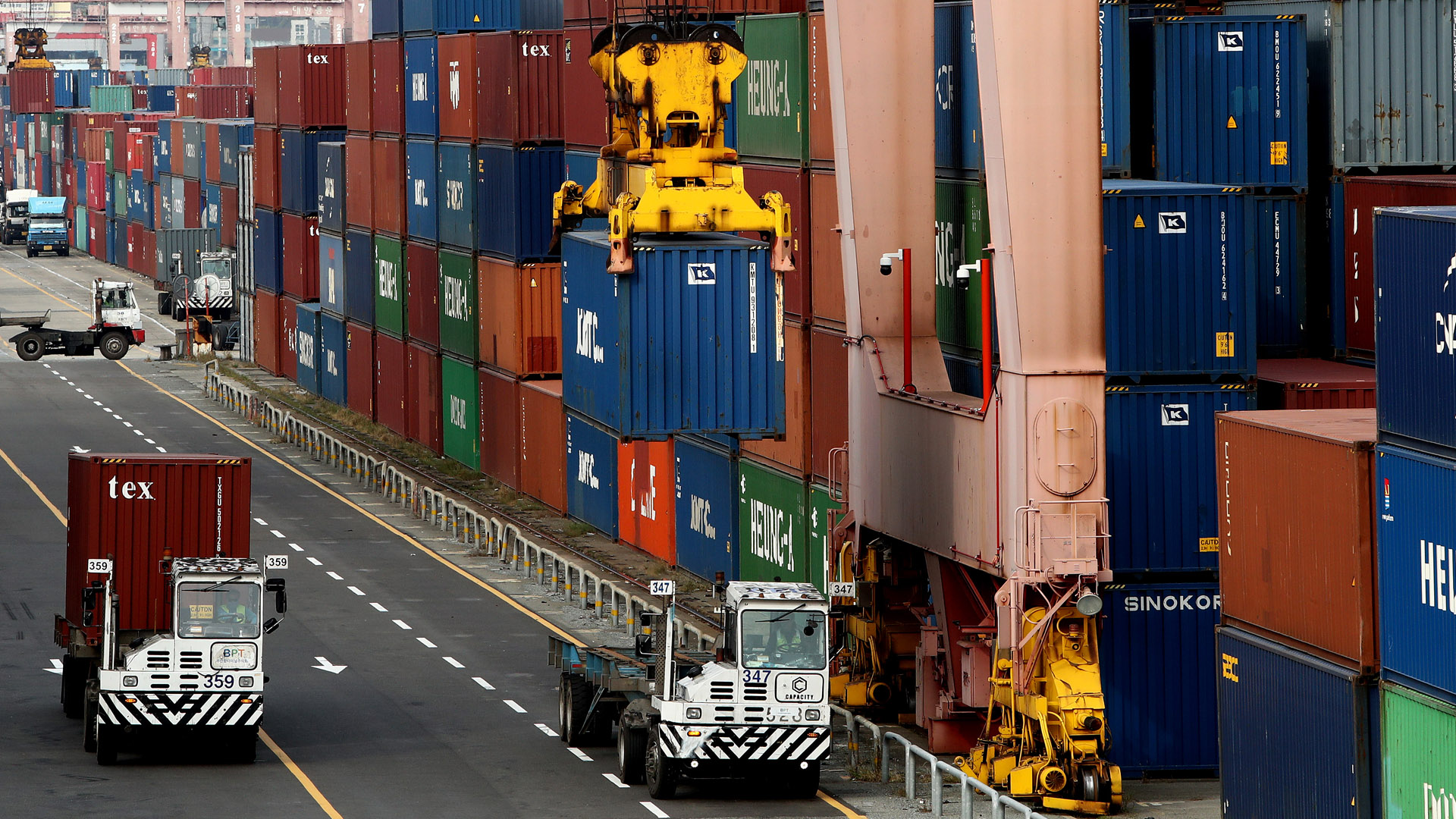

We may earn revenue from the products available on this page and participate in affiliate programs. Learn more ›
After the massive fire onboard the Felicity Ace that claimed thousands of luxury cars, there’s quite a lot of nervousness among shipping companies about moving EVs (or more specifically, their batteries) around. One shipping giant has even said it won’t take any secondhand electric cars on board—but the world’s seventh-biggest port in, Busan, South Korea, is developing a better way of shipping lithium-ion vehicle batteries.
Busan is an extremely busy port. Despite the massive disruption to global supply chains due to COVID-19, roughly 22 million shipping containers traveled through the port in 2020, and South Korea is a major producer of batteries for electric vehicles. So for the port, it’s incredibly important to find a safe solution for transporting EV batteries, both when they’re already inside a vehicle and as packs to be put into builds. To that end, The Loadstar has reported that the municipal authority in Busan has decided to develop a so-called “smart” container that will make carrying lithium-ion vehicle packs in large cargoes safer.

In order to do that, Busan is working with Vesta (South Korea’s largest container manufacturer) as well as Busan Techno Park and Korea Pallet Pool, a pallet rental company that works on selling what things in the containers are stacked on. The goal is to develop a “Battery Safe Transport Smart Container” and put everyone’s minds at ease about having lithium-ion onboard.
The problem is that when lithium-ion batteries go up, they burn incredibly hot—3,632 degrees Fahrenheit is about the starting temperature for a plasma arc vaporizer. In addition to the temperature, EV battery fires are tricky to put out, too. They are exactly what you do not want to happen on a ship full of other things.
The Loadstar reports Lee Joon-seung, the head of Busan’s digital innovation office, as saying, “Busan processes more than 90 percent of the country’s lithium-ion battery imports and exports, so the development of container technology for safe battery transport is essential. By securing safety, the status of Busan as an international port and logistics city will be enhanced.”
There aren’t any details yet of what the smart container will entail. A lot of containers already do monitor the temperature and levels of dampness inside to help preserve the products being transported, especially when it’s something perishable like food. The most important things for lithium-ion batteries to avoid are situations where they could be subjected to extreme heat or somehow direct water gets involved, such as any flooding that a battery could sit in for some time. Although the packs are sealed, they aren’t intended to sit in standing water, and equally, any damage caused by the ship rolling could be a risk to destabilize a battery.
While big U.S. and European manufacturers are scrambling to build gigafactories to get the batteries they need, South Korea has been supplying them in the meantime. General Motors’ longtime battery partner, LG, built all the cells for the unfortunately recalled Chevy Bolt there, and Busan is where 90 percent of the batteries exported from South Korea start their journeys.
Got a story tip? Mail it in on tips@thedrive.com
